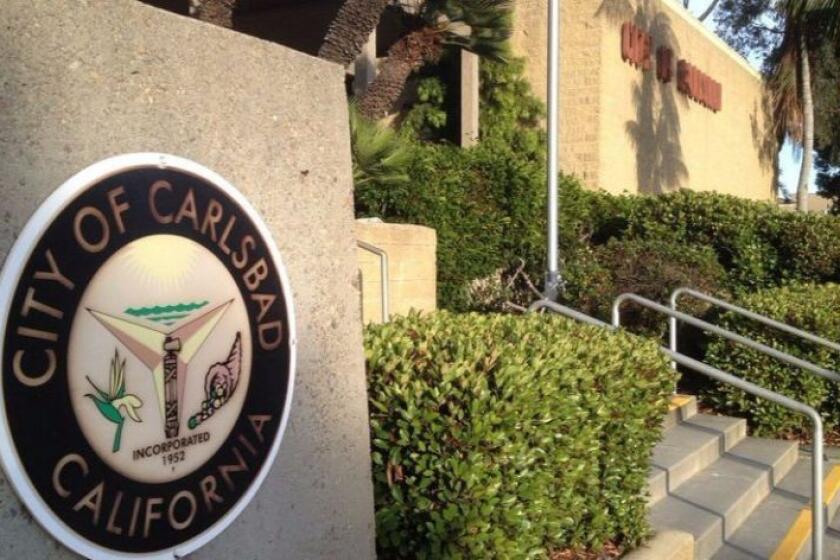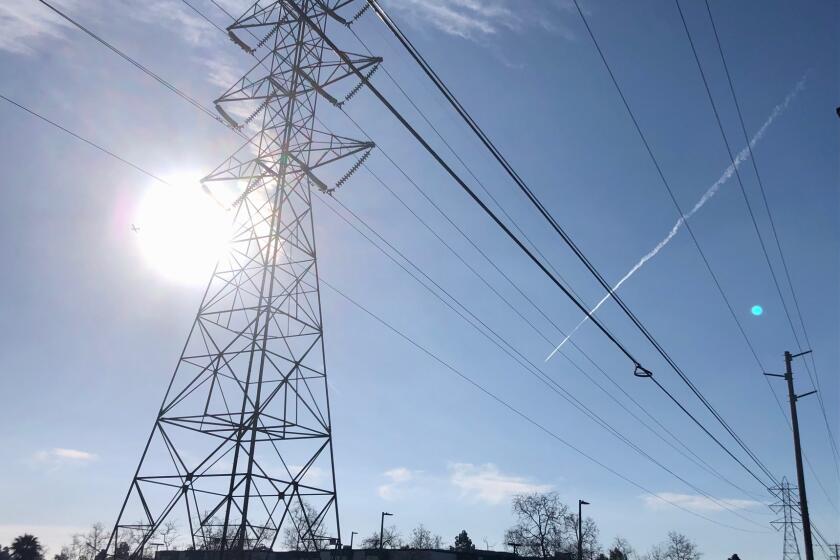Del Mar struggle delays railroad fence again
Transit district approves additional studies for $388,00
The installation of a fence to keep people off the railroad tracks in Del Mar, already delayed by public opposition, has been postponed again so North County Transit District can complete more studies.
Transit district officials initially told Del Mar in an Oct. 9, 2020, letter that the agency would install a 6-foot-high, chain-link fence by the end of the year along areas of the tracks “with the highest incidence of trespassing” in Oceanside, Encinitas and Del Mar.
For the record:
9:08 a.m. May 24, 2021This article has been corrected to show that the NCTD board voted 6-2-1, with Oceanside Mayor Esther Sanchez and Vista Councilwoman Corinna Contreras voting no. Del Mar Mayor Terry Gaasterland abstained.
Later that year, district officials said they would delay the Del Mar installation until 2021 to continue negotiations with the city and other agencies, including the California Coastal Commission. District Executive Director Matt Tucker said Thursday that the closed-door discussions continue, and the construction contract now will be awarded no sooner than Dec. 31.
The proposed barrier met less opposition in Encinitas and relatively little in Oceanside, where the tracks are not as close to the beach. The Oceanside installation contract was awarded last year. Most other areas of the tracks in the county already have the fence, installed within the right-of-way on transit district property.
Del Mar residents have fought the fence for years. They say it would ruin their coastal views, reduce property values, impede access to the beach, and increase erosion on the fragile bluffs. Transit officials say the barrier would prevent deaths on a stretch of the tracks with one of the highest rates of fatalities in Southern California.
“One of the current challenges to rail operations on the San Diego Subdivision is trespassing events that result in injuries, fatalities, service disruptions/delays (average delay over 120 minutes for significant events), potential damage to equipment and infrastructure and liability claims,” states an NCTD staff report.
Rail traffic is expected to increase from the current average of 67 trains each weekday to more than 100 trains a day by 2030. The district recently purchased new locomotives that are faster and quieter, which will increase the hazard for pedestrians on the tracks.
Unlike almost anywhere else, many Del Mar residents insist that they have the right to cross the tracks, which are owned by the transit district, whenever and wherever they please.
“People have safely crossed and walked the tracks for decades,” said Shawn Caine and his wife, Maureen, residents for 26 years, in one of 163 letters opposing the fence that the board received before its meeting Thursday. Three letters supported the fence.
“Fences will not prevent train strike incidents, but will provoke an adversarial relationship with a public that has been enjoying the beach and co-existing with the train for over 100 years,” states a letter from Bill Carpenter.
Another concern heard Thursday was that digging hundreds of holes for fence posts will further hasten erosion of the bluffs. Studies show the bluffs retreat at the average rate of six inches annually, though recent collapses have chewed away much more than that.
The study approved Thursday by the transit district’s board of directors will cost up to $388,028 and will include surveying, design, mapping and detailing of rights-of-way for installing the fence along a 1.4-mile section of the track in Del Mar.
The transit filed a petition in August 2020 with the federal Surface Transportation Board, asking the agency to dismiss the city and the California Coastal Commission from any oversight — in matters such as local building permits — for all projects needed to safeguard the tracks along the bluffs.
Subsequently, the transit district asked to suspend proceedings on the petition “to facilitate discussions” with Del Mar and the Coastal Commission. The Transportation Board’s website states that the proceedings will remain “in abeyance” until Dec. 31.
Del Mar Mayor Terry Gaasterland, who represented the city at Thursday’s NCTD board meeting, sought to postpone a decision on the contract for additional studies. However, her motion failed for the lack of a second.
San Diego County Supervisor Jim Desmond, the county’s representative on the transit board, said he saw no reason to delay the study.
“We have an unsafe condition,” Desmond said. “People crossing the tracks on foot is an unsafe condition. We have a responsibility to remove that unsafe condition. We need to do something about it ... This has been going on a while, and we seem to just keep kicking the can down the road.”
The NCTD board approved the contract 6-2-1with Oceanside Mayor Esther Sanchez and Vista Councilwoman Corinna Contreras voting no. Gaasterland abstained.
Eventually, the district plans to remove the tracks from the bluffs. Several possible routes through tunnels beneath the city are being studied, but completion of that project is decades away.
Get North County news in your inbox
Top stories from the San Diego North County every Monday, Wednesday, and Friday.
You may occasionally receive promotional content from the San Diego Union-Tribune.











